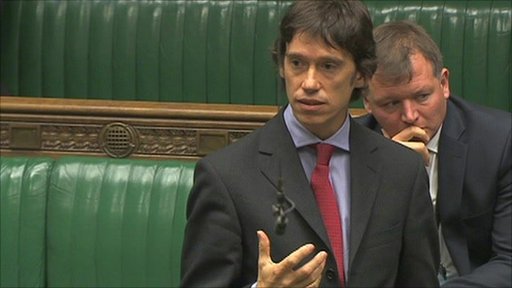A Conservative MP and former diplomat has used a debate on the 10th anniversary of the Iraq war to launch an attack on British foreign policy.
Rory Stewart began his remarks on 13 June 2013 by saying the invasion represented the "worst British foreign policy decision since the Boer war or, in fact, since the first Anglo-Afghan war in 1839".
He continued: "We don't think very much about Iraq... Why don't we think about these things? Because we're not very serious.
At some level this country is no longer being as serious as it should be about foreign policy.
"Our newspapers are not writing enough about Iraq.The Foreign Office is not thinking enough about the failure. The military is not thinking enough about these things."
The debate, tabled by the Backbench Business Committee, was led by Green MP Caroline Lucas.
She said: "The political and legal position was misrepresented. And from this rises the belief amongst many journalists and the public and many members of this House that they were misled into supporting the Iraq War."
But Labour's former foreign secretary Jack Straw broke in: "What we were seeking in the second resolution was not war but peace - I was desperate for it - by an ultimatum with six tests in it, which, by the way, were drafted by Hans Blix."
A Conservative MP, Edward Leigh, disputed Ms Lucas' claims about whipping: "The atmosphere in the party was very relaxed. Although there was a whip, people were allowed to vote against it."
From the Lib Dem benches, Andrew George asked for recognition that many MPs "scrutinised the evidence at that time and came to the conclusion that it was unwise in those circumstances to proceed with engaging in military action in Iraq".
Ahead of the debate, Foreign Office Minister Mark Simmonds announced that the inquiry will begin a new phase in the summer, with Sir John Chilcot writing to individuals who are to be criticised.
He told MPs that the findings of the Chilcot inquiry would help the country move forward.
"It is vital that we should learn the lessons of this conflict and that of course is the fundamental and primary remit of Sir John Chilcot's Iraq inquiry. This is a very complex and substantial task," he said.
"I don't have a definitive time-scale when that final report will be published but it is absolutely essential that Sir John Chilcot and his colleagues do this in a thorough and professional way."
"There are still massive challenges in Iraq and we must not overstate the progress that has been made," shadow Foreign Office minister Ian Lucas cautioned.
"I hope and pray that the next decade to come will be defined by the kind of international co-operation that was regrettably absent in Iraq," he concluded.
The UK lost 179 military personnel during the war, 136 of them killed in action. Forces were withdrawn in 2009.













0 Comments